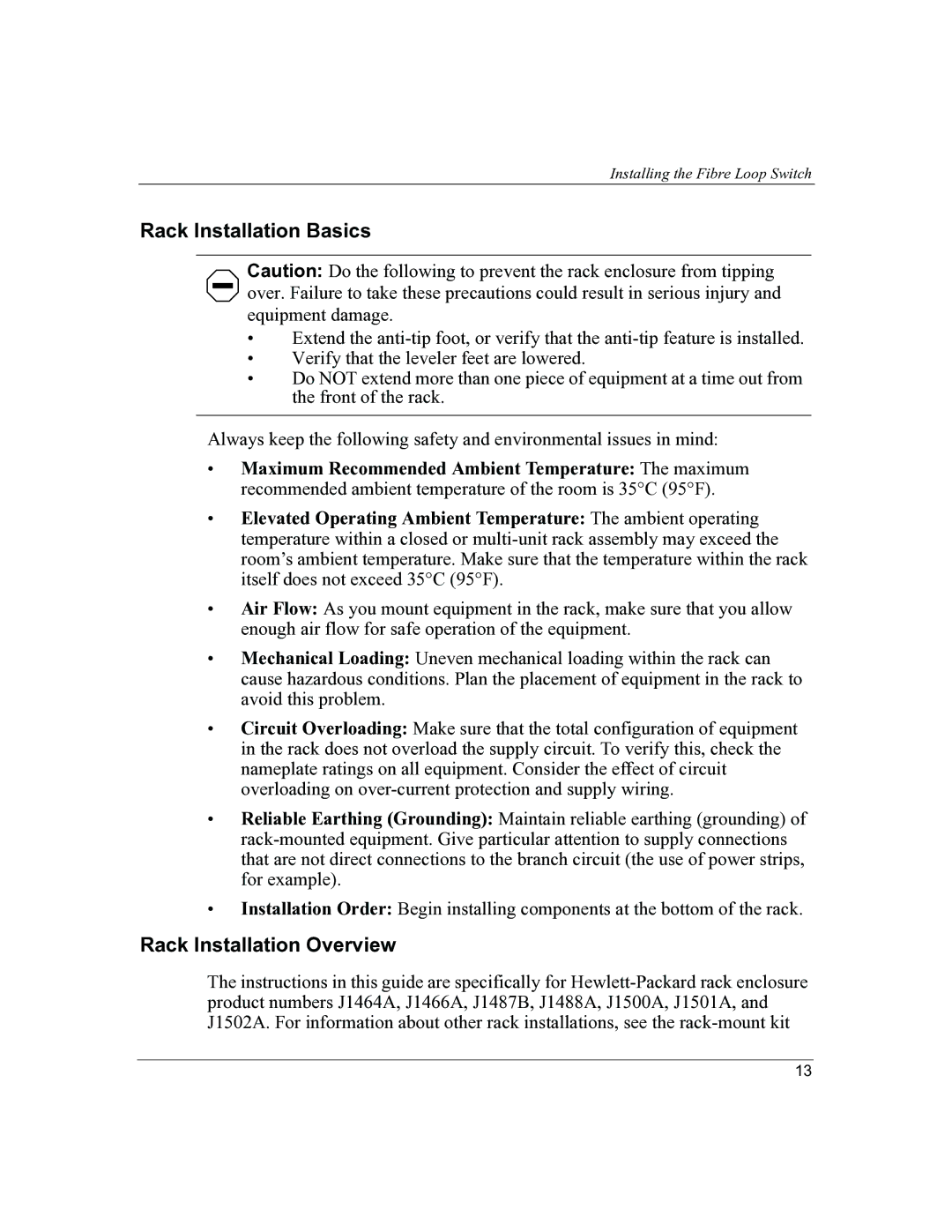
Installing the Fibre Loop Switch
Rack Installation Basics
Caution: Do the following to prevent the rack enclosure from tipping over. Failure to take these precautions could result in serious injury and equipment damage.
•Extend the
•Verify that the leveler feet are lowered.
•Do NOT extend more than one piece of equipment at a time out from the front of the rack.
Always keep the following safety and environmental issues in mind:
•Maximum Recommended Ambient Temperature: The maximum recommended ambient temperature of the room is 35°C (95°F).
•Elevated Operating Ambient Temperature: The ambient operating temperature within a closed or
•Air Flow: As you mount equipment in the rack, make sure that you allow enough air flow for safe operation of the equipment.
•Mechanical Loading: Uneven mechanical loading within the rack can cause hazardous conditions. Plan the placement of equipment in the rack to avoid this problem.
•Circuit Overloading: Make sure that the total configuration of equipment in the rack does not overload the supply circuit. To verify this, check the nameplate ratings on all equipment. Consider the effect of circuit overloading on
•Reliable Earthing (Grounding): Maintain reliable earthing (grounding) of
•Installation Order: Begin installing components at the bottom of the rack.
Rack Installation Overview
The instructions in this guide are specifically for
13
